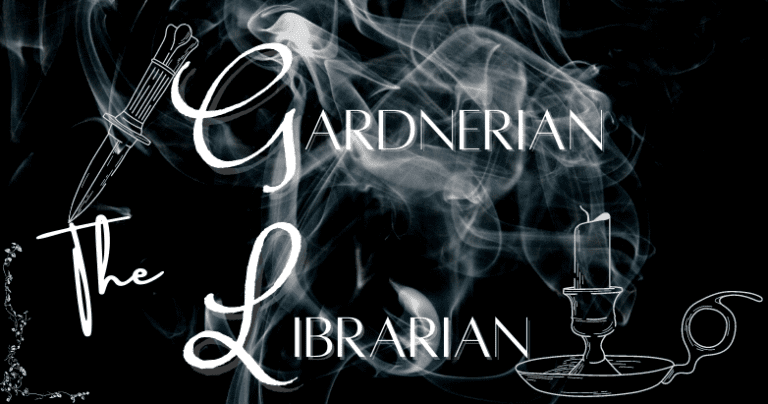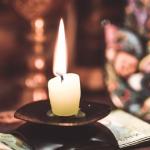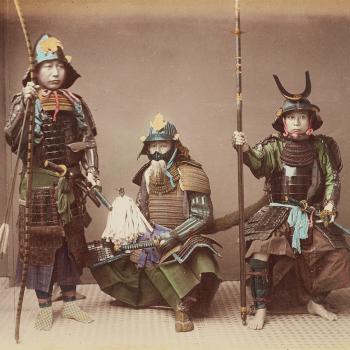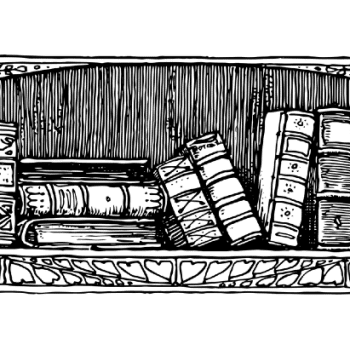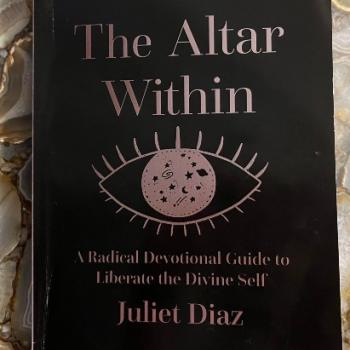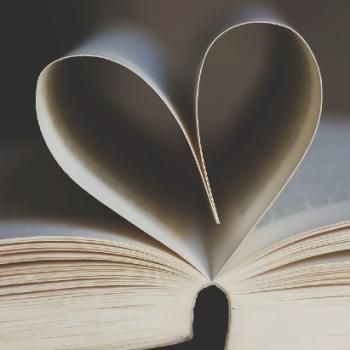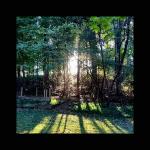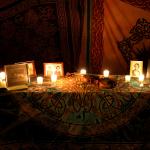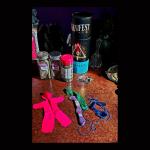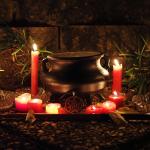TLDR; reading fiction is good for the brain and for building social relationships. Pagan/witchy/occult fiction title recommendations at end of post.
I work in a college library and so it should come as no surprise that our most popular materials don’t fall under fiction. The reality is that anyone who holds a regular 9-to-5, is a student, or a parent is less likely to have time to read, let alone read fiction. For some, reading anything other than nonfiction isn’t considered intellectual. For others, they would rather read about real events and people than made-up characters and worlds. But what if I told you that there are very real benefits to reading fiction?
Research shows that reading improves our abilities to empathize with others, comprehend others’ beliefs and desires separate from our own, and think critically. If simply reading can improve those qualities then imagine specifically what reading fiction can do. Fiction plunges us into worlds, time periods, and thoughts that are not our own. It forces us to engage in a story from another sentient being’s point of view, even if that being is just the narrator. Fictions asks us to consider not applying what we know or think to be true to a few hours’ worth of a story that isn’t our own.
Suspend Disbelief & Embrace Fiction
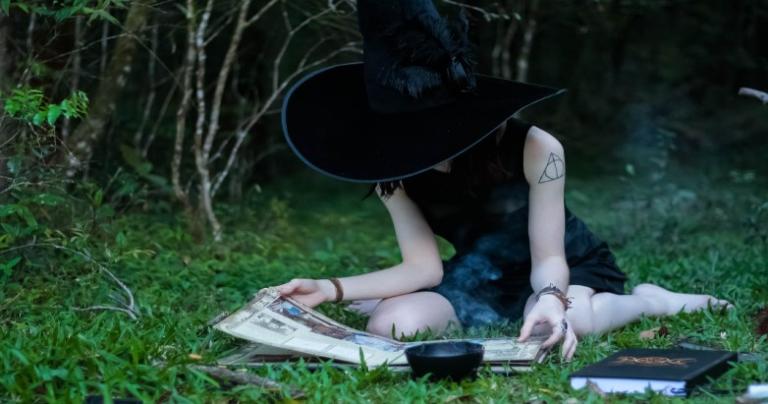
Sci-fi and Fantasy novels and series build entire worlds based on their own universal laws and societal rules. These laws and rules are usually completely foreign to ours. When we choose to read a work of fiction, we choose to set aside everything we currently understand to be comfortable and normal. You know what else does that to us? Practicing witchcraft. Creating and writing fiction IS practicing witchcraft in my mind.
In each mini or marathon reading session, we strengthen our understanding of a story’s characters. We begin to see things from their points of view, which may eventually lead us to care for them and what happens to them on some level. If a story can make us feel these things about fictional characters then imagine what happens when we encounter real-life stories of other beings around the world. Did any of you read the Redwall series by Brian Jacques? If so, how many of you turned out to be animal lovers to this day? Or, ya know, did you at least develop a healthy fear of Constance Badger’s savage revenge on Cluny’s Army? If you know, you know.
Reading is a skill that requires some muscle-work on the parts of our brains and eyes – or hands, if a person reads Braille. Like any other physical skill, reading must be frequently practiced if it’s to have any real benefit. Practice requires something many of us have very moderate to little amounts of — free time. What free time we have, we selfishly guard and understandably so. This article isn’t about time management, though, so all I’ll say is that making time for reading – reading fiction, specifically – will be to your benefit.
My advice? If you aren’t a big reader but wish to be, slowly increase the amount of time that you spend reading by 5 minutes every few days. Many of us struggle with activities that require prolonged attention, I know. However, most of us can slowly improve our attention skills through reading. Like hitting the gym, you have to start small with building your reading skills and work your way up to longer, more challenging texts.
Pagan/Witchy/Occult Fiction Titles & Where to Find Them
Recently, I polled my Instagram followers for their favorite works of pagan/witchy/occult fiction. Their responses were amazing and their recommendations are below. I obtained permission from each person to post their review and name prior to publishing this post. Very little was edited to preserve the integrity of their thoughtful responses.
- Witchylibrarian recommends Hellblazer, a horror comic series published by DC comics since 1988. Witchylibrarian wrote, “The John Constantine character is intricate and the world is absolutely fascinating. Seeing the development of the character and the influence of magic on his life. As well as the influences of mental health on magic. One of my fave storylines is him trying to take his power back from the asylum he was locked up in.”
- A few other titles recommended by Witchylibrarian include: “The Witch Boy by Molly Ostertag, [which] has such an interesting dynamic between girls and boys and power. The characters are adorable and the illustrations are fantastic. “XXXHolic”, has my favorite Dimension Witch, and is so educational about Japanese lore, and social philosophy. If you can get past CLAMPS gangly character designs there is really so much to the series. The Magical Bakery series by Bailey Kates is an easy read paperback mystery series. Has tasty recipes at the end and there is mention of magical correspondences being added to tasty treats. The magic isn’t the main focus but it’s definitely an influencing factor to the story. Unpopular opinion I also love the witches in Bayonetta (video game) because they really embraced sensual power, and the representation of angels as the antagonists is fantastic.” Lastly, Witchylibrarian recommended Garden Spells by Sarah Addison Allen because “[i]t very much had the Practical Magic movie vibes. And the magic is subtle and beautiful.”
- Daphneclearwater recommends The Vine Witch by Luanne G. Smith: “This book has become one of my favorite witch-fiction books because even though a lot of the magic is fantastic, it’s usually fantastic in a way that feels like it branches off from very real things. The main character, Elena, works her magic to care for the vineyard she was raised in, and there are descriptions of her burying charms in bottles in the ground to aid the health of the vines, slipping into second sight to see other people in other locations, collecting ingredients from the world around her to keep in her craft-apothecary, things like that. It’s very earthy. I love the language that the author uses-in the book there’s a problem with the vines, and if I’m remembering correctly the author describes them as being in a state of ‘melancholia’.”
- Cristina, also know as JustAFolkingWitch, recommends Mexican Gothic by Silvia Moreno-Garcia “[b]ecause it brought in the idea of mycelium / fungi taking over human consciousness and enacting power through a family. Female heroine! Won’t give away the end though. Also, I love a good gothic horror novel.”
- Thorn Mooney recommends Isobel Bird’s Circle of Three YA series from the early 2000s. She writes, “It’s about three teen girls discovering Wicca over the course of a year and a day. What I love about them is that they’re realistic, are true to real Pagan communities. It’s not paranormal romance or super powers. Just three real teens practicing magic, growing as witches, and becoming adults. I read these books as a Wiccan teen and felt like these characters were my friends. I still think about them, all the time.”
- FamilarShapes recommends The Magicians series by Lev Grossman. They wrote, “First…when Quentin is admitted to Brakebills he has this moment of reflecting on past magical experiences because he’d doubted them, and his admittance to Brakebills confirmed that his previous experiences were real. As a child I practiced magic of a sort (as many of us have) and I sort of ‘grew up’ out of it for many decades — I even entertain occult literature and ideas as a new academic, but from a distanced ‘objective’ experience. It was only when I learned that a work acquaintance (whom I respected and admired very much) was Wiccan (and an initiate of Gardnerian Wicca even) that it was like these childhood doors burst open and suddenly the world was entirely different — the enchanted world of my childhood was real, although now I was an adult — not waiting for the ‘harry potter’ magic, but able to grasp it from different vantages.”
They go on to say that, “The next part is the description’s of Julia’s addiction to magic and her rabid pursuit of learning more and more magic. I think many of us have had phases where we ‘discovered’ some new branch of occult practice and just were utterly consumed with it, often feeling like it’s impossible to read enough fast enough to get All The Knowledge so then we can apply it. I know I felt that way about all of Wicca when I first ‘discovered it’ after learning my friend was an initiate. But there’s so many branches of magical practice and occultism, I think many of us re-experience that pretty-much-desperate hunger in regular cycles.”


